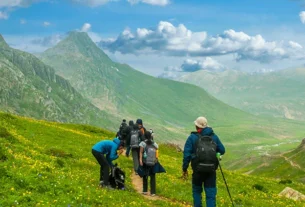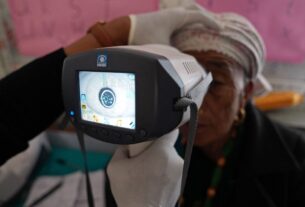In the quiet, mountainous regions of eastern Afghanistan, life has changed forever. What began as an ordinary day turned into a nightmare when a devastating 6.0 magnitude earthquake struck on Sunday, reducing entire villages in Kunar and Nangarhar to rubble. Just two days later, another quake, measuring 5.5, shook the region again—disrupting rescue efforts and causing further destruction.
Now, as the dust begins to settle, over 1,457 lives have been lost, and 3,400 people lie injured, with more than 6,700 homes destroyed. For many, there is no home to return to—no belongings, no food, and no certainty about tomorrow.
“We’ve lost everything,” said Aalem Jan, a father and survivor from Kunar. “Our home, our memories—everything is buried beneath the rubble. We only have the clothes we’re wearing.”
As survivors dig through the debris with bare hands and makeshift tools, desperately searching for loved ones, aid workers and volunteers face an uphill battle. Roads have been cut off by landslides, and helicopters can’t land in the hardest-hit areas, forcing rescuers to parachute in. Even then, the situation is dire.
Visuals from the ground show heart-wrenching scenes—families carrying their deceased in woven stretchers, digging graves with pickaxes, and waiting anxiously for help that may not come soon enough.
The humanitarian needs are “vast and growing rapidly,” according to the International Federation of Red Cross and Red Crescent Societies (IFRC). They estimate up to 84,000 people are directly and indirectly affected by the disaster. Aid trucks loaded with sacks of flour and critical supplies continue to trickle in, but time and resources are running out fast.
Afghanistan’s long-standing challenges—poverty, conflict, and dwindling international aid—are now colliding with natural disaster. Global attention has shifted elsewhere, and funding cuts by key donors, including the U.S., have left critical gaps in support. The World Health Organization has already flagged a $3 million shortfall, threatening the availability of trauma kits and essential medicines.
The U.N. World Food Programme warns it only has the resources to support survivors for four more weeks. After that, even the most basic help may dry up.
“This earthquake is a cruel reminder that Afghanistan continues to bleed,” said Jacopo Caridi of the Norwegian Refugee Council. “We need donors not just to respond, but to stay. Without long-term support, these people will fall into yet another cycle of loss and despair.”
As the world watches, the question is no longer just about rescue—but about whether Afghanistan will be forgotten again in its darkest hour.




